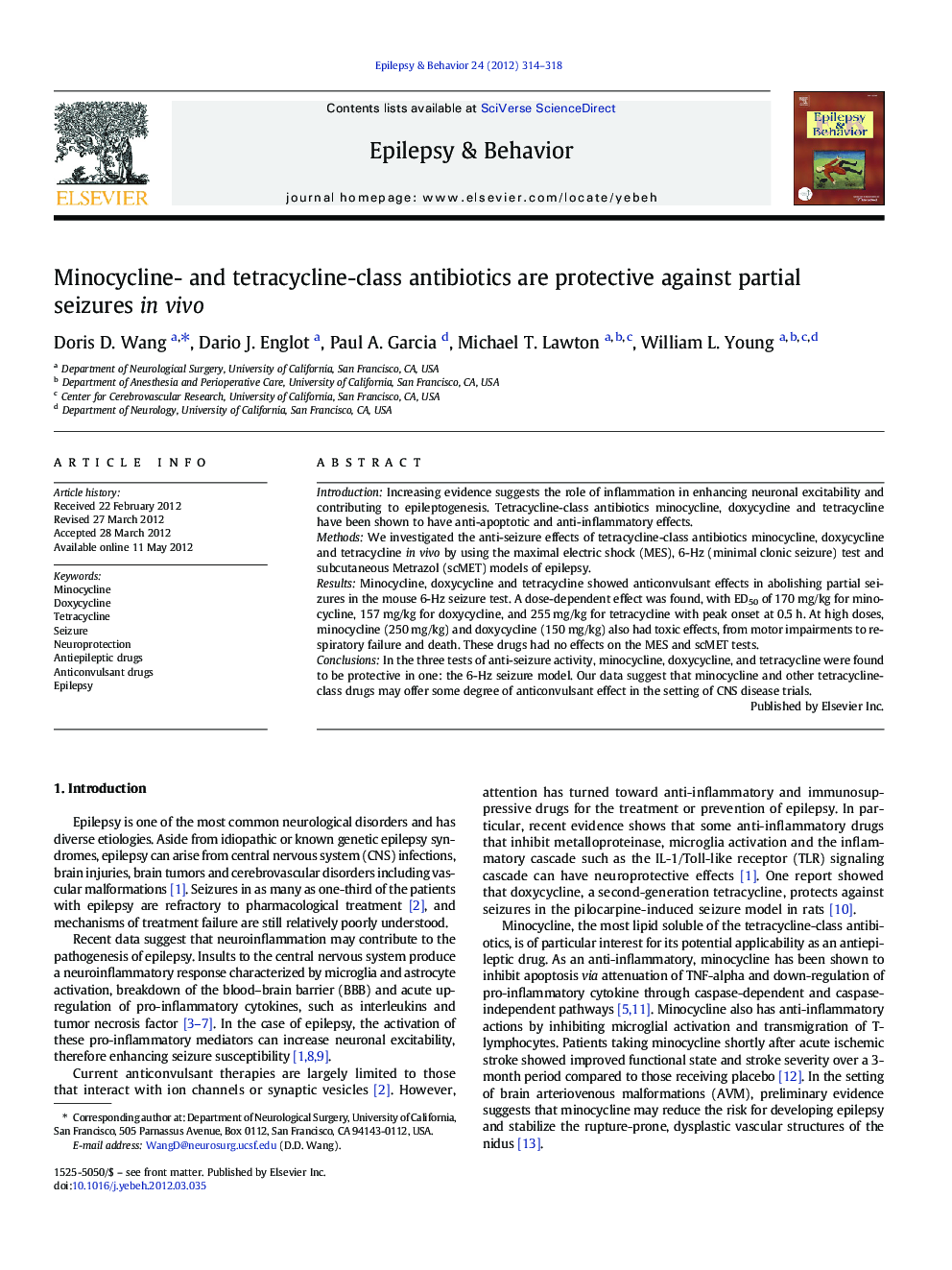| Article ID | Journal | Published Year | Pages | File Type |
|---|---|---|---|---|
| 3049825 | Epilepsy & Behavior | 2012 | 5 Pages |
IntroductionIncreasing evidence suggests the role of inflammation in enhancing neuronal excitability and contributing to epileptogenesis. Tetracycline-class antibiotics minocycline, doxycycline and tetracycline have been shown to have anti-apoptotic and anti-inflammatory effects.MethodsWe investigated the anti-seizure effects of tetracycline-class antibiotics minocycline, doxycycline and tetracycline in vivo by using the maximal electric shock (MES), 6-Hz (minimal clonic seizure) test and subcutaneous Metrazol (scMET) models of epilepsy.ResultsMinocycline, doxycycline and tetracycline showed anticonvulsant effects in abolishing partial seizures in the mouse 6-Hz seizure test. A dose-dependent effect was found, with ED50 of 170 mg/kg for minocycline, 157 mg/kg for doxycycline, and 255 mg/kg for tetracycline with peak onset at 0.5 h. At high doses, minocycline (250 mg/kg) and doxycycline (150 mg/kg) also had toxic effects, from motor impairments to respiratory failure and death. These drugs had no effects on the MES and scMET tests.ConclusionsIn the three tests of anti-seizure activity, minocycline, doxycycline, and tetracycline were found to be protective in one: the 6-Hz seizure model. Our data suggest that minocycline and other tetracycline-class drugs may offer some degree of anticonvulsant effect in the setting of CNS disease trials.
► Minocycline shows anticonvulsant effects against minimal clonic seizure. ► Anticonvulsant effects were seen with doxycycline and tetracycline. ► These drugs showed dose-dependent effect and peak onset at 0.5 h. ► Toxic effects were seen with very high doses, from motor impairments to death.
